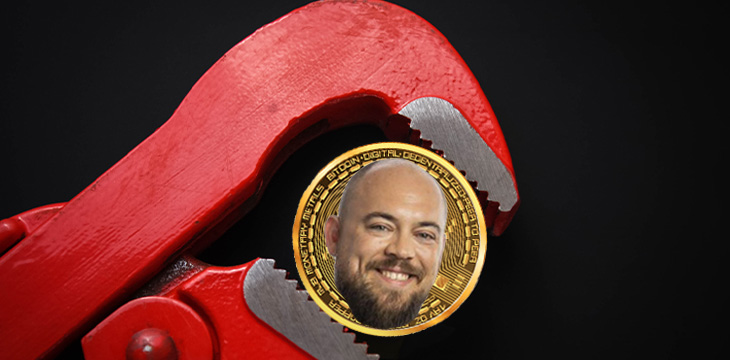|
Getting your Trinity Audio player ready...
|
As we watch the Federal Reserve, FDIC and other agencies reassure the world that “everything is fine,” we also have to deal with the nauseating cacophony of small blockers pretending to be excited about global collapse because “Bitcoin fixes this.”
As a Bitcoiner, I don’t think it does, and here’s why!
What is fractional reserve banking?
Banks keep only a fraction of the funds deposited by their customers on reserve, while lending out the rest to borrowers. In other words, banks are allowed to lend out a portion of the money that they receive from depositors, rather than holding onto all of it. This is great when faith in the institution is strong, but when the economy (or in some cases, the news) makes people feel uneasy, this can change rapidly.
The idea behind fractional reserve banking is that it allows banks to earn a profit by charging interest on loans, while also providing a convenient service to customers by allowing them to easily access their funds with friendly tellers and a mix of payment tools. However, it also creates a potential problem known as a “run on the bank,” where depositors all try to withdraw their funds at the same time, leaving the bank unable to fulfill all of the withdrawal requests.
To prevent this from happening, governments typically require banks to hold a certain percentage of their deposits in reserve, and there are vehicles like the FDIC that guarantee deposits with a federally backed insurance system.
Great! R-r-r-right?
Well, not always.
Why do bank runs happen?
A bank run is like a game of musical chairs, but with money. As soon as the music stops, everyone rushes to grab a chair (or their money), leaving a few unlucky folks standing without a seat (or their savings). It’s like the world’s least-fun game show, where the prize is just getting your own money back.
The problem is the spillover effects of such behavior can lead to what the media called “contagion” where increasingly larger banks have runs as people get more and more spooked—potentially leading to a full-blown financial crisis.
When banks like Silicon Valley Bank and Credit Suisse fail, there is a sudden and significant loss of confidence in the financial system, and in this case, it might lead to a widespread panic and a rush to sell off larger and more systemic assets, including stocks, bonds, and real estate. Coupled with the rapid increase in interest rates, rising cost of living and other macroeconomic concerns, the world economy is looking like an increasingly shaky prospect.
So, Bitcoin fixes this?
The phrase “Bitcoin fixes this” is often used by proponents of Bitcoin (most typically BTC) to suggest that the use of Bitcoin can help address certain issues in the current financial system, such as inflation, government corruption, or centralized control of money. But this is mostly nonsense.
This ignores what banks and Bitcoin actually do! Lending is an important economic function, and it is entered into with known risks. If lending occurred in an “all Bitcoin” economy, the same risks would still exist because loans inherently have risk.
For small blockers, they seem to mean that holding Bitcoin should accrue value forever, and therefore someone who has Bitcoin would have no need for a loan ever again. But if their coins aren’t meant to be spent, how can someone ever buy anything? Or maybe they just mean everyone can audit everything forever. Who knows?
Bitcoin doesn’t fix this
In reality, Bitcoin was designed to solve problems of payment friction and data integrity.
There might be some tangential use cases where the use of Bitcoin can help the audit trail or public attestation of reserves, but the world can’t function with low velocity money and everyone banking with a full reserve institution.
We need some debt, we need risk, we need credit systems and we need highly liquid digital cash that can be used by billions of people on earth. Right now, no blockchain is capable of that scale as currently implemented, and most don’t even think it is worth it to try.
An attitude of separatism and seclusion will work for some people in a crisis, but by design, it can’t work for too many people at once. And if the world truly falls into chaos, it might be wiser to have guns, ammo, water filtration and precious metals for the doomsday portfolio.
And while everyone’s hoarding apocalypse assets while praying for collapse, I still think it is both wise and moral to focus on reducing global payment friction and building a base layer that can manage tokens, contracts, titles and other data in a way that stops the economy from collapsing at all.
Wouldn’t that be better?
That’s something Bitcoin could fix, if we could just work together.
Watch Kurt Wuckert Jr. on CoinGeek Conversations: Bitcoin needs more salespeople

 02-19-2026
02-19-2026 




